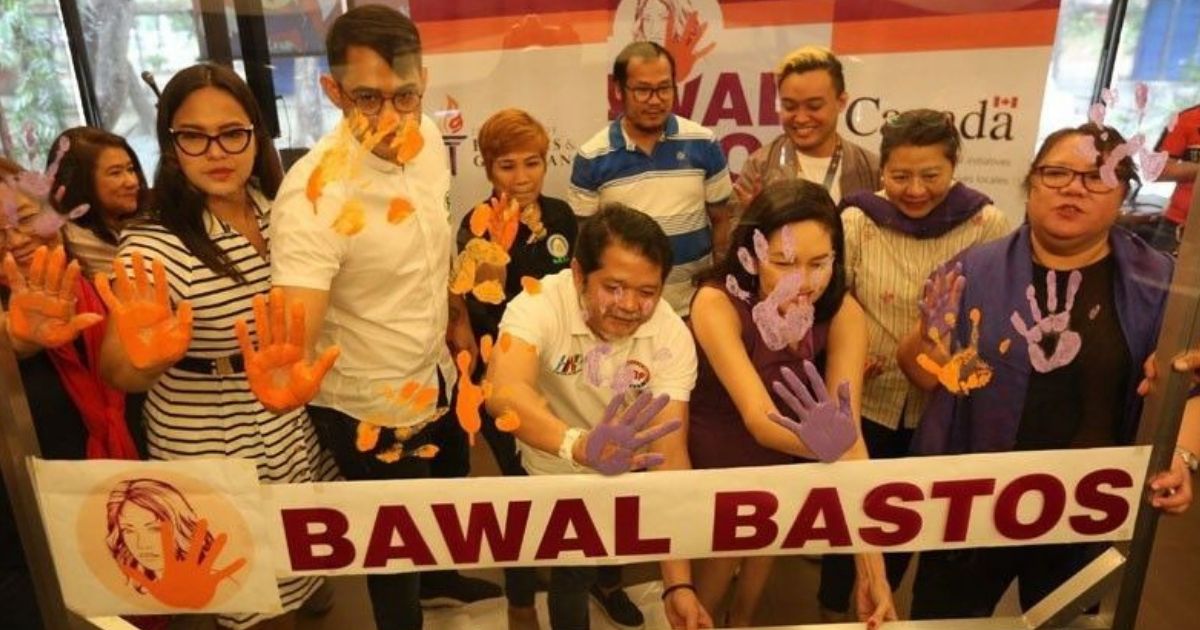
Beware men who are fond of wolf-whistling or catcalling to their opposite sex. Recently, a new law was approved punishing any form of slurs or sexual harassment done in public, in private messages, and online.
The Anti-Bastos law or the Safe Spaces Act or Republic Act No. 11313 was signed and approved by President Rodrigo Duterte on April 17, 2019. It was introduced to the public last July 15, 2019.
The Act covers several forms of sexual harassment. The corresponding penalties depend on the degree of the offenses.
Anti-Bastos Law First degree offenses include the following:
- Catcalling
- Wolf-whistling
- Cursing
- Intrusive gazing and leering
- Misogynistic, homophobic, transphobic, and sexist slurs
- Unwanted invitations, taunting
- Unwanted comments on the appearance of an individual
- Use of ridiculous actions, gestures, or words based on sexual orientation or gender
- Use of sexual comments, names, and demands
Anti-Bastos Law Second-degree offense
- Public masturbation
- Offensive body gestures
- Groping
- Flashing of private parts
- Similar lewd actions
Anti-Bastos Law Third-degree offenses
- Sexual gestures and statements with brushing and pinching against the body of another person
- Stalking
- Pinching, brushing, or touching against the face, arms, breasts, buttocks, genitalia and other parts of the body
Penalties
First-degree offense
- First offense: Php1,000 fine and community service within 12-hours and Gender Sensitivity Seminar
- Second offense: Php3,000 fine and six to ten days imprisonment
- Third offense: Php10,000 fine and 11 to 30 days imprisonment
Penalty for second-degree offenses
- First offense: Php10,000 fine, 12-hours community service
- Second offense: Php15,000 fine and 11 to 30 days in jail
- Third offense: Php20,000 fine and one to six months in jail
Penalty for third-degree offenses
- First offense: Php3,000 fine and attendance to Gender Sensitivity Seminar, 11 to 30 days in jail
- Second offense: Php50,000 fine and one to six months in jail
- Third offense: Php100,000 fine and four to six months in jail
See also: President Duterte Signs Student Fare Discount Law and Get 20% Discount
Sexual harassment in schools and workplaces
As stated in the law, sexual harassment is an act that involves requests for sexual favors, unwelcome sexual advances, or any act of sexual harassment done either physically or verbally using technology and other forms of communication systems that cause detrimental effect to a person’s employment, job performance, or education.
Thus, employers are encouraged to create a committee that will cater to sexual harassment complaints. The head of the committee must be a female employee. Half of the number of the committee must be women.
Online sexual harassment
Using technology to intimidate the victim through emotional, physical, and psychological threats is a form of online sexual harassment. Sharing or uploading photos or videos with sexual content without the permission of the victim is punishable by this law. Other forms of sexual harassment include incessant messaging, cyber-stalking, impersonating identities to harm the reputation of the victim, and posting false abuse reports to threaten the victim.
An individual who commits any form of online sexual harassment will be charged to pay from Php100,00 to Php500,000 fine, or two to four years in prison. The PNP Anti-Cybercrime Group is in-charge to arrest online violators using real-time reporting.